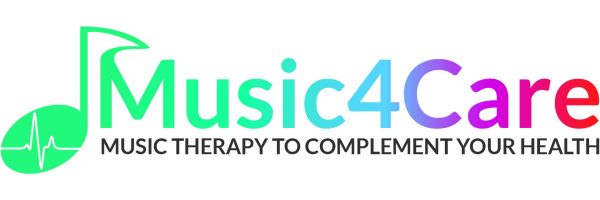Is Music Therapy Different From Relaxing To Music?
Yes! Music therapists are highly trained and accredited healthcare professionals who use music as a therapeutic vehicle to meet the patient’s healthcare goals. A Music Therapist’s credential is the “Music Therapist-Board Certified” or MT-BC for short. Music Therapists put this credential behind their name as an indication of the achievement.
Music therapist receive their certification from the Certification Board for Music Therapists. The MT-BC certification requires three things:
- Graduate from university that has an accredited music therapy program
- Complete an approved clinical internship that lasts 6-9 months.
- Take and pass a national exam from the Certification Board for Music Therapists.
By the time music therapists take their exams they have accumulated over 1,200 clinical hours in addition to academic coursework. After receiving their MT-BC credential music therapists must maintain their professional credentials by taking a minimum number of approved continuing education courses.
In short, relaxing to a CD in your room is not music therapy but a therapeutic use of music. There is certainly value in therapeutic music! However, therapeutic music has no healthcare goals that have been developed as part of an integrated approach to promote patient care. Additionally, there is no trained professional who can assess patient needs, understand where music therapy can provide therapeutic value, and help the patient process what occurred during a session.
Is Music Therapy Evidence Based
Yes! As the definition from the American Music Therapy Association states Music Therapy is the clinical and evidence-based use of music interventions to accomplish individualized goals within a therapeutic relationship by a credentialed professional who has completed an approved music therapy program. Music therapists rely on clinical research from around the world to help them bring the best interventions possible to meet a patient’s needs. In fact, music therapists in the US have two peer-reviewed journals that come out every quarter, namely the Journal of Music Therapy and Music Therapy Perspectives.
When writing a session plan a music therapist must be able to justify how an intervention meets a goal and what research was used to help create the goal and intervention.
Is Music Therapy All The Same?
No. All music therapists must meet the same expectations for certification (i.e., schooling, clinical internship, and national testing). However, there are many different types of music therapy approaches that may be taught to the students. The six major approaches or schools of thought are: Biomedical, Behavioral, Cognitive, Humanistic, Holistic, and Psycho-dynamic. Each of these approaches use different interventions, have slightly different goals, and have different success rates with different populations. Part of the Code of Ethics for music therapists requires that a music therapist must be able to adapted their approach to suite the patient’s need in the moment.
Music therapists can also specialize or earn additional certifications in other approaches such as Bonny Method of Guided Imagery and Music (GIM), Nordoff-Robbins Neurological music therapy (NMT), Neonatal Intensive Care Unit- Music Therapy (NICU-MT), as well as Hospice and Palliative Care Music Therapy (HPMT).

